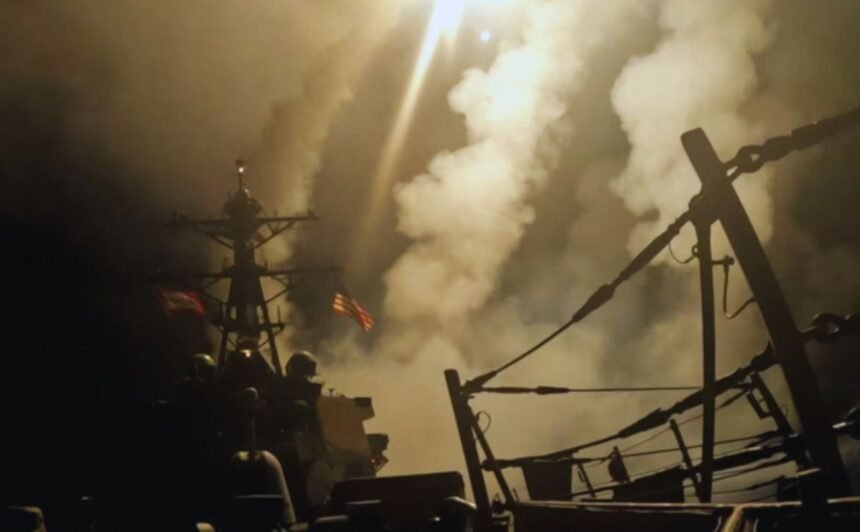U.S. President Donald Trump has launched large-scale military strikes against Yemen’s Houthi forces in response to ongoing attacks on Red Sea shipping, marking the most significant U.S. military intervention in the region since he took office in January. The strikes, carried out by fighter jets from U.S. aircraft carriers, began on Saturday, with officials signaling that operations may continue for weeks.
The airstrikes targeted Houthi military positions across Yemen, including in Sanaa, Taiz, and a power station in Saada—where Houthi leader Abdul Malik al-Houthi is known to meet officials. According to the Houthi-run health ministry, at least 31 people were killed and over 100 injured. The group denounced the attacks as a “war crime” and vowed retaliation.
Trump Justifies Strikes, Blames Biden for Weak Response
Trump defended the strikes as necessary to protect global trade routes, accusing the Houthis of “choking” international commerce by disrupting navigation through the Red Sea, Suez Canal, and Gulf of Aden. He pledged to use “overwhelming lethal force” to neutralize the threat and criticized former President Joe Biden for what he called a “pathetically weak” response to previous Houthi attacks, which he argued had emboldened the group and cost the global economy billions.
Pentagon sources reported that since 2023, the Houthis have carried out 174 attacks on U.S. warships and 145 assaults on commercial vessels. In response, the U.S. military has escalated its involvement, with the Trump administration making it clear that further Houthi aggression will not be tolerated.
Iran Warned as Regional Tensions Rise
Trump also issued a direct warning to Iran, the Houthis’ main backer, urging Tehran to cease its support or face severe consequences. Iranian Foreign Minister Abbas Araqchi condemned the U.S. strikes as a violation of Yemen’s sovereignty, accusing Washington of attempting to dictate Iranian foreign policy. Meanwhile, Iran has accelerated its uranium enrichment program, drawing concern from Western officials who warn that its nuclear capabilities are nearing weapons-grade levels.
Houthis Vow Retaliation, Target Israeli-Linked Ships
In retaliation, the Houthis have vowed to resume attacks on Israeli-linked vessels, reigniting tensions in the Red Sea. Their maritime campaign, originally launched in support of Palestinians amid the Israel-Hamas conflict, has significantly disrupted global shipping and forced the U.S. and its allies into costly military operations to secure vital trade routes.
Escalating Conflict Contradicts Trump’s Anti-War Promises
Despite pledging to end U.S. military entanglements abroad, Trump’s decision to engage in sustained airstrikes marks a notable shift in policy. While he argues that military strength is necessary to deter adversaries, the latest escalation underscores the complexity of U.S. involvement in the Middle East.
The White House has not ruled out additional strikes, with U.S. Defense Secretary Pete Hegseth stating, “Houthi attacks on American ships and aircraft will not be tolerated.” As the conflict deepens, questions arise over whether Trump’s military intervention will deter further hostilities or drag the U.S. into another prolonged Middle Eastern conflict.







